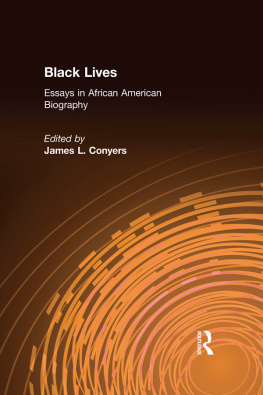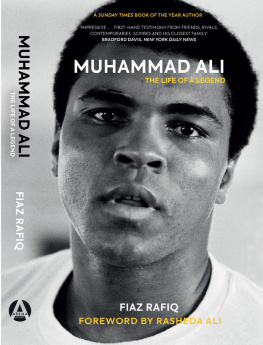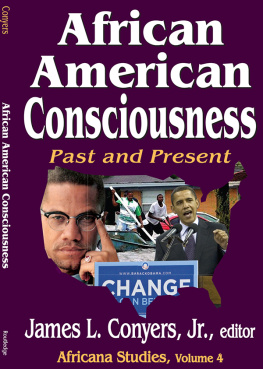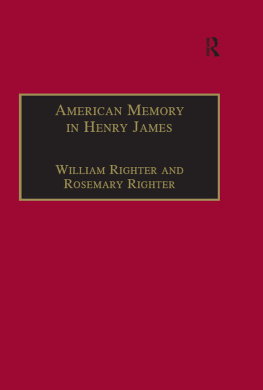Muhammad Ali in Africana Cultural Memory
Muhammad Ali in Africana Cultural Memory
James L. Conyers Jr.
Christel N. Temple
Anthem Press
An imprint of Wimbledon Publishing Company
www.anthempress.com
This edition first published in UK and USA 2022
by ANTHEM PRESS
7576 Blackfriars Road, London SE1 8HA, UK
or PO Box 9779, London SW19 7ZG, UK
and
244 Madison Ave #116, New York, NY 10016, USA
2022 James L. Conyers Jr. and Christel N. Temple editorial matter and selection;
individual chapters individual contributors
The moral right of the authors has been asserted. All rights reserved. Without limiting the rights under copyright reserved above, no part of this publication may be reproduced, stored or introduced into a retrieval system, or transmitted, in any form or by any means (electronic, mechanical, photocopying, recording or otherwise), without the prior written permission of both the copyright owner and the above publisher of this book.
British Library Cataloguing-in-Publication Data
A catalogue record for this book is available from the British Library.
Library of Congress Control Number: 2021951470
ISBN-13: 978-1-78527-719-1 (Hbk)
ISBN-10: 1-78527-719-7 (Hbk)
Cover Image: Boxing gloves hanging nailed to wall as concept of retirement, By Khakimullin Aleksandr / Shutterstock.com
This title is also available as an e-book.
In memory of
Dr. James L. Naazir Conyers Jr.
June 17, 1961January 25, 2021
Author, visionary, leader, collaborator, mentor
and
Godfather to generations of scholars
CONTENTS
Christel N. Temple
James L. Conyers Jr.
Molefi Kete Asante
Wade W. Nobles
Abul A. Pitre, Ruby Holden-Pitre, and Natalie Williamson
Bayyinah S. Jeffries
Suzuko Morikawa
Anju Reejhsinghani
Rebecca Hankins
Derek Wilson
Billy Hawkins
Akilah R. Carter-Francique
Karen E. Alexander, Ryan Moore, Jeanette Anderson, William Kouba, and Waveney LaGrone
Howard Bartee Jr.
Autumn Raynor
Brandon Allen
Angela Branch-Vital, Andrea McDonald, Park Esewiata Atatah, Catherine Kisavi-Atatah, and James L. Conyers Jr.
I still remember the shouts Ali boma ye (Ali kill him) as we all listened on October 29, 1974, in my village Ntumbaw, in the northwest region of Cameroon, to the broadcast of the most important heavyweight fight between Muhammad Ali and George Foreman, which was called (no one knows why) Rumble in the Jungle. The fight took place in Stade Tata Raphsel in Kinshasa in the then Zaire, now the Democratic Republic of the Congo. Our sports analysts on Radio Cameroon, Abel Mbengue, and Peter Esoka,
The history of the fight is shrouded in controversy, but for the many Congolese and Africans who followed this international sporting event that pitted two sons of the African world on African soil, it was a real big deal, something that has not been repeated on the African continent. Most people do not know exactly why it took place, but we must give Don King the credit. He wanted someone to sponsor this big event, and General Mobuto Seseseko Kuku Ngbendu Wa Za Banga, who had seized power in the country in 1965, stepped to the plate and offered to pay for the cost of the fight. Regardless of what one thinks of the cost for an African country at the time, one can say this for sure that this was one of the few times when watching that fight one could say the people enjoyed the benefit of the taxes they paid into the treasury.
As I listened on that day, I wondered why the 60,000 people gathered there on that day to cheer and applaud one son of Africa to kill another son of Africa and shouted Ali boma ye (Ali kill him). Did these people really want Ali to kill his fellow American and, for that matter, his Black brother in a sport that was meant to entertain? Many thought this is just the way things are and when you enter the ring, you can expect the worst thing to happen to you. But did they really want a descendant of Africa to kill another descendant of Africa on African soil? I think most people would agree that kill him in sports is a euphemism for beat him and take the crown; in this case it was the heavyweight boxing championship. Defeating some on a game is a type of killing, which does not physically destroy the opponent, but establishes who is the most skillful competitor in the sport at that time of the game.
This book on Ali certainly invites us to think of the many ways we can and should celebrate the champion and the hero of the African world (Africa, North America, the Caribbean, and Latin and South America) and all areas where Black civilization exists in some form. The African world and the rich scholarship in every area of our intellectual engagement that have been produced often stand on the shoulders of the people, who have led, in Du Boisian terms, our strivings. The story of those strivings has been led by Black women and men of all backgrounds. Ali, one of the most emblematic, articulate, inspiring, and, yes, direct, honest, and one who says it like it is, remains very endearing to many people. It is wonderful to see this work conceived and executed by Professors James Conyers and Christel Temple, two brilliant minds of Africana thought and its numerous cultural mythologies, come to fruition. Each contribution to this book is a gem in itself and gives us a portrait of the champ who lives every day in our memories.
As you read, you join others in affirming that Ali (and for that matter every Black athlete, child, or person) should win. But we know also that if the chant in Kinshasa made Ali to boma Foreman in the stadium on that day, people would have been shocked and frightened. They would have wondered why the gods of Africa had sent such a clear signal that something was terribly wrong. Why did the gods and ancestors not warn them? Why would they allow something like that to happen when Africans and their brothers across the Atlantic should really have been working on a giant reconciliation! I suspect if the worst had happened and someone had died, African leaders would bring in the best ngangas (the spiritual and ritual experts) in the Congo to determine why someone would be killed in what to the observers was just a game or fight. I suspect those ngangas would have carried out the required rituals to cleanse the stadium and the land, and may be all of Africa. I still think that such a cleansing must happen to keep the souls of millions who perished in the Middle Passage, all Black people who still perish at the hands of those who should protect then in America, and the many Black bodies who are brutalized by the political system on the homeland. Such an inquiry would not be some hocus-pocus, but an inquiry into the spiritual condition of all the people, White, God-fearing Christians who traded human beings, and the Africans who lacked either the power or the will to reject this dehumanizing enterprise and its legacy that continues to haunt humanity today.
I think it may be the case that no one in the Congo on that day wanted Foreman to die. But one does not know why there was no demonstration of neutrality, leaving the crowd to call out Ali









